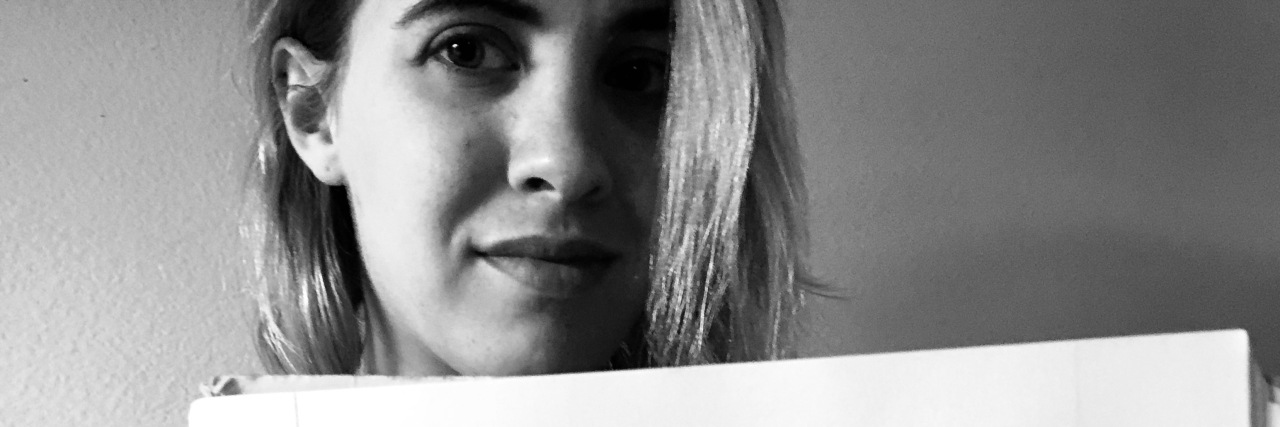Why the Day I Was Diagnosed With BPD Was the Best Day of My Life
Editor's Note
If you struggle with self-harm or experience suicidal thoughts, the following post could be potentially triggering. You can contact the Crisis Text Line by texting “START” to 741741. For a list of ways to cope with self-harm urges, visit this resource.
For as long as I can remember, I’ve felt different.
I’ve always felt like there was something inherently and uniquely wrong with me. Others might ride with their dark passenger a couple days of the month, maybe a bit more, but mine lived with me. I have never experienced a day, hour or minute of my life that I have not feel dread. Every moment of any happiness has also been accompanied by a voice telling me happiness is not real and I should not enjoy the feeling because it cannot last. The fact I could never put a word to this mindset I constantly experienced made me feel so alone.
Loneliness is another issue I struggle with. No matter whom or how many persons I am with, what I am doing or what is being done for me, I feel alone. I can only recall a few moments in my childhood when I felt close to another person, and none of those times was with a parent.
I try so hard to open up and connect with others, but that little voice comes back and reminds me everyone has ill intentions and there’s no such thing as a sincere person. I really do believe that, though I’m working hard in therapy to challenge that faulty belief.
If you add the emotional instability and intensive, scattered feelings with the gloom and loneliness described above, you end up with, essentially, me. When I feel emotions, I feel them intensely and I feel an overwhelming desire to act on them, an impulse.
I have this belief that if I don’t immediately act on an uncomfortable feeling, I won’t survive it. The unfortunate thing is that all feelings are uncomfortable to me. I can’t sit with my feelings. I don’t know how. I never had the experience of sitting with my feelings as a child because my feelings took a backseat to the conflict going on within my home at the time. I didn’t have time to feel sad for myself because I was too busy taking on my mom’s sadness to relieve her. At the age of 10, I discovered that one way to escape what I was feeling was through self-harming, and that became a coping mechanism I heavily relied on the next 15 years.
For the past 25 years of my life, others have clearly told me of all of my problems, hearing the recurrent phrases:
“You’re irrational. You’re delusional. You need to stop thinking in extremes. You’re paranoid. You’re always so emotional. You’re dramatic. You’re all over the place. Why is everything black and white to you? You’re overreacting. You’re throwing a fit. Why are you so jumpy? There’s no need to be startled. You’re not even listening. You’re zoning out. You’re erratic. You’re too needy. You’re a child.”
I know. Don’t you think I would do something if I knew what and how!?
My best was never enough. I was different in a bad way. There was something really wrong with me… until the day I was diagnosed with borderline personality disorder (BPD). My team of psychiatrists, therapists and other professionals told me I have this disorder. My brain does not function the same way yours does. I have a smaller amygdala (part of brain which regulates fear and aggression) which means which means it’s overreactive. My hippocampus (flight or fight response) is in a state of constant hyperarousal, continually misinterpreting threats and sending faulty messages in a constant fight or flight mode. I have abnormal levels of cortisol (the stress hormone) in my bloodstream. High levels of cortisol have literally eroded away my prefrontal cortex responsible for rationality and decision-making.
The greatest relief I had yet to experience flooded over me that day.
My diagnosis meant there was something different about me. My diagnosis meant I don’t feel or think like “normal” people. My diagnosis meant I don’t know how to do a lot of things you learned to do as a child. My diagnosis means there are other people like me. My diagnosis means I am doing my best, fighting an internal battle others can’t see. My diagnosis meant I do have a disorder. But most of all, my diagnosis meant I can get help.
For the first time in my life, I felt I had something that was a part of my identity. I learned the feeling of dread is called existential angst. The loneliness stems from my fear of abandonment. My emotional instability stems from childhood neglect and trauma. I am suffering. I am fighting a real battle. A daily, even moment by moment battle to manage emotions and impulsions. I’m not unworthy of love because of my disorder. My disorder is now a part of who I am, and learning about it was half the battle.
If you know what you’re fighting, you can go to battle prepared and ready each day, and that’s how I feel since learning I have BPD.
Image via contributor.

